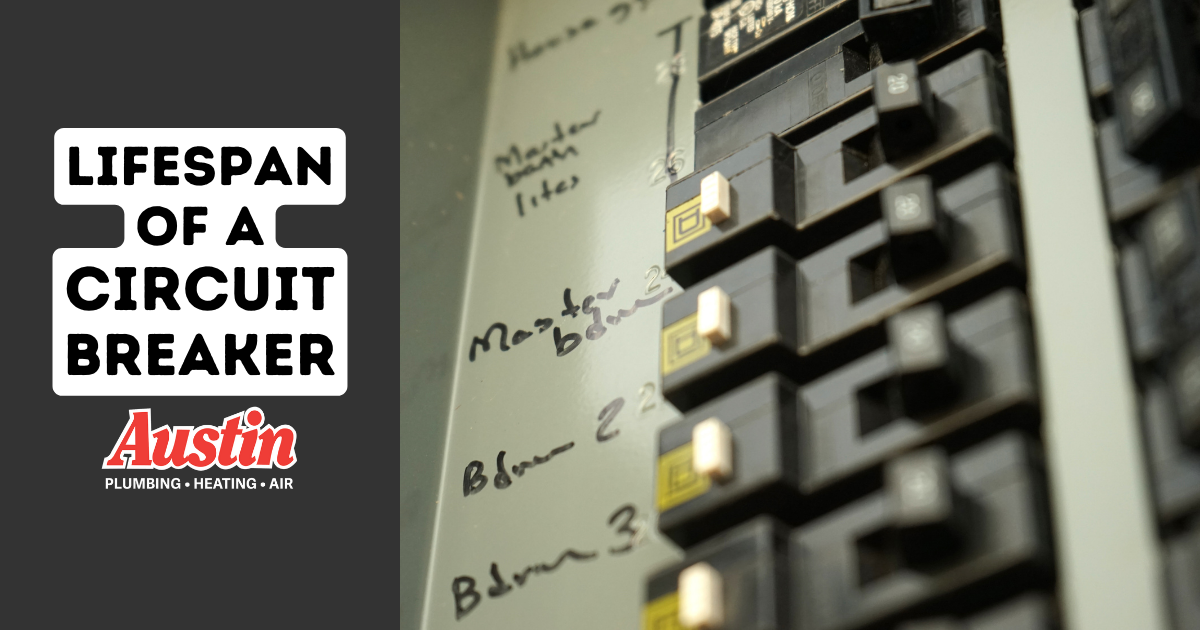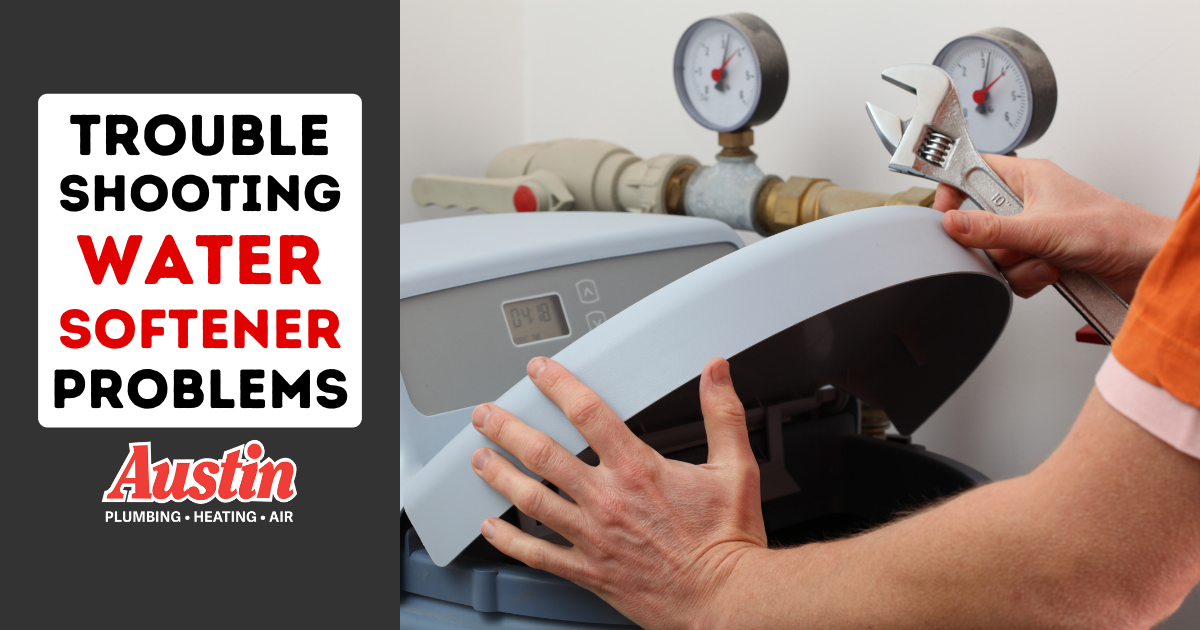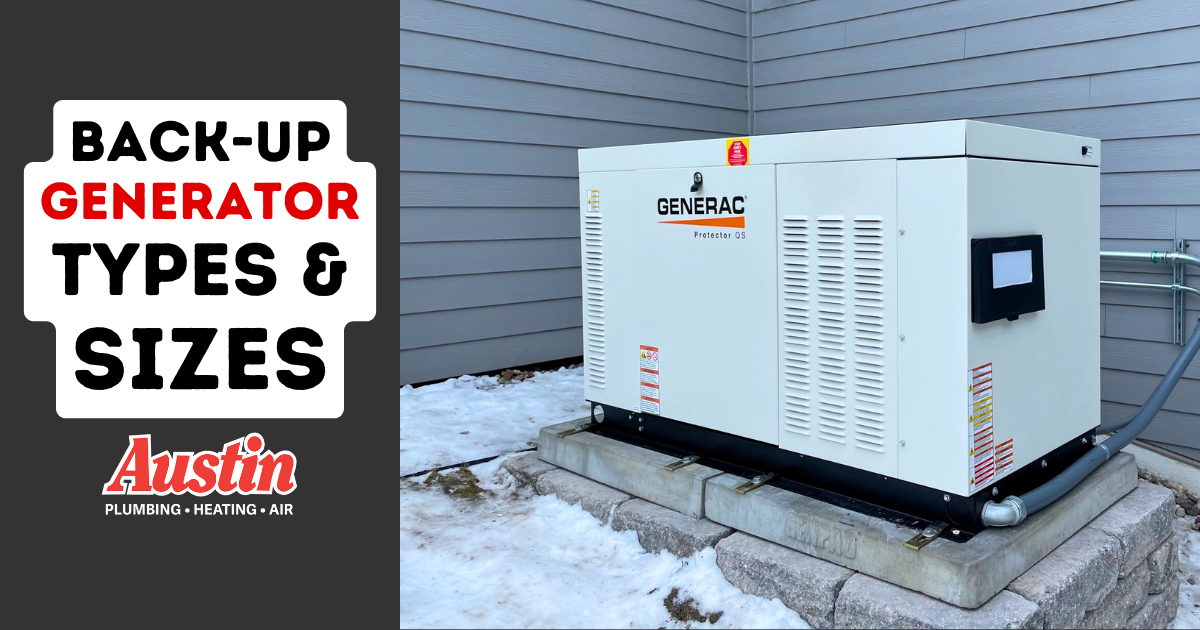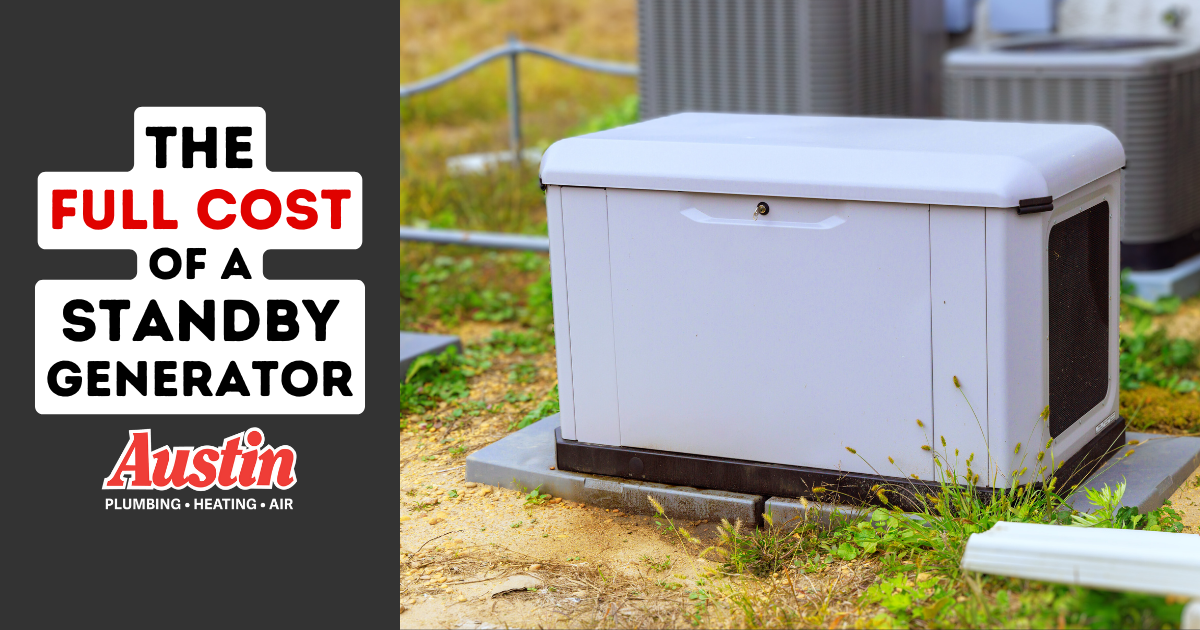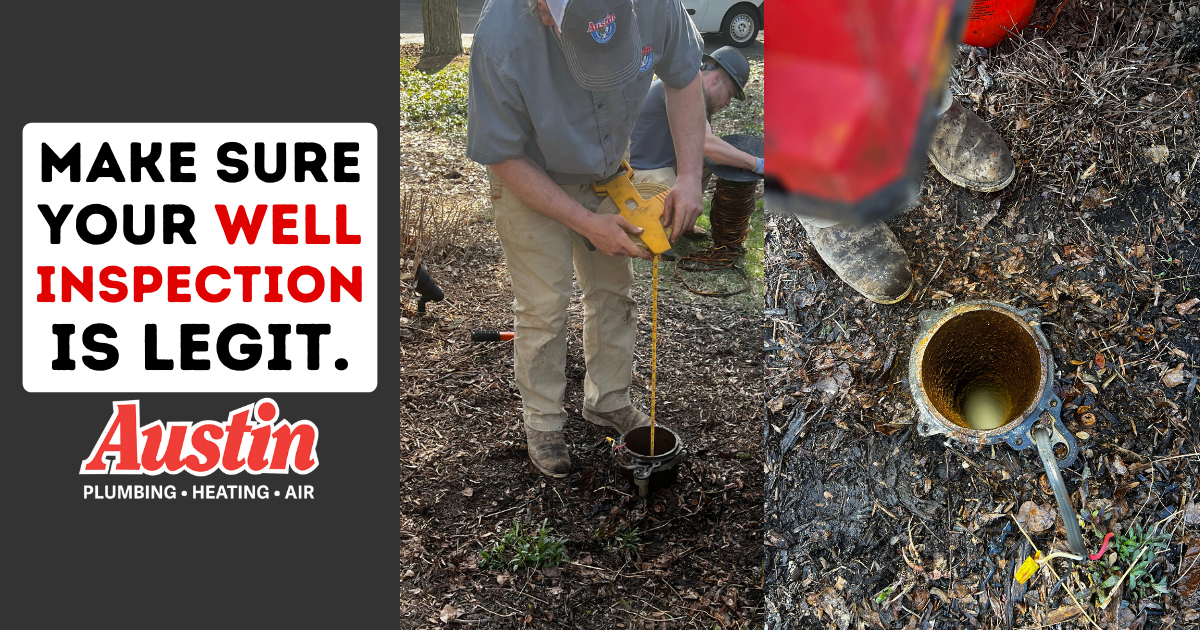How to Stop a Water Heater Leak (Fast)
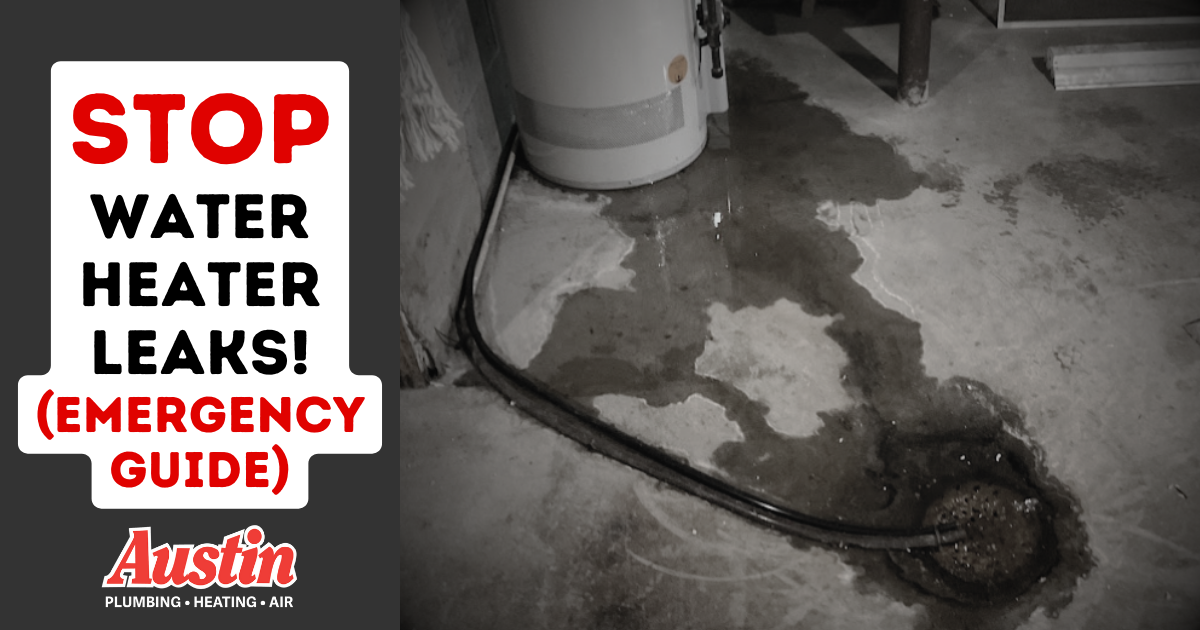
Instructions from Team Austin’s Master Tradesman on how to deal safely with water heater leaks before they get worse.
So your water heater appears to have given up the ghost-in the form of a leak! To mitigate damage and preserve your own safety, there are certain steps you should follow right away. Let’s discuss the proper way to shut off your water heater until the pros at Austin Plumbing, Heating & Air arrive on the scene.
In This Article
-
How to stop a leaking water heater
-
What safety measures you should take
Step #1: Shut off the incoming water supply to the water heater.
There should be two thick, copper pipes feeding into the top of your water heater. These are water lines, usually ¾ inches wide, and each one does something different. One of them feeds cold water into the heater; the other is for hot water going out of the heater. We need to turn off the first one.
At minimum, Wisconsin code requires a control valve on the cold-incoming water line. If you only have one valve to adjust, it’s this one. Close the incoming water valve. (Rotate it all the way in whichever direction it allows you to turn it.)
Pro tip: If we installed your water heater, this part’s pretty simple. All you have to do is look for a bright-green tag, which we use to mark the valve for the incoming water supply. However, note that we often include valves for both of the water lines. If you have two, then go ahead and close them both!
Step #2: Shut off the incoming gas to the water heater.
Although this step is technically optional, many customers prefer to take it, and we recommend it for safety concerns.
If you have a gas water heater, first look for a gas pipe (typically black in color) which leads towards the bottom of the appliance. Now, find the emergency gas shut-off valve. Gas code requires one of these to be installed within 5 feet of the gas valve, so you won’t have to look far. Once you find that emergency valve, close it.
Pro tip: If you have an Austin water heater, the emergency gas shut-off valve should be located very near our bright-green tag.
Step #3: Turn off the circuit breaker.
This step ONLY applies to those who have electric water heaters. You’ll need to look at the electric panel and turn off the water from there.
If you have a gas water heater, disregard this step.
Step #4: Unplug your water heater from the wall.
This step applies ONLY if you have a power-vent water heater that is plugged into the wall. Unplugging this type of water heater is a sure-fire way to prevent it from trying to run when you aren’t looking.
FAQ: Should I drain the water tank?
This part is completely up to you.
Even with the cold (incoming) valve turned off, it’s reasonable to worry that what’s left in the tank (which could be anywhere from 40 to 75 gallons of water) will continue leaking out. However, turning off the cold-incoming water valve guarantees that there won’t be any more external pressure on your cracked water heater tank. Without additional pressure, it should not continue to leak, no matter what.
Still, if the location of your water heater is in a home area that is susceptible to damage, you may choose to drain the tank for peace of mind. There is nothing to lose by doing this-it won’t cause any problems.
Before you drain the tank, though, it is extremely important to make sure that you have completely shut off all gas and/or electricity to the water heater!
Stopping the leaking tank: Steps to Drain the Tank Correctly
- Shut off the water to the failed water heater.
- Shut off the gas, as well, to drain the leaking water heater.
- Disconnect the electric supply, if applicable.
- Attach a garden hose to the drain valve at the bottom of the hot water tank.
- Run the hose while it is oriented toward the floor drain.
- Open the water heater drain valve.
- Locate the pressure relief valve on the side of the water heater. This is not the same as the cold-incoming or hot-outgoing waterline valves.
- Once you have found the pressure relief valve, lift the lever until it locks open. When you first open this valve, a small amount of water may “glug” out of the connected tube. That’s OK! This mechanism allows air into the tank so that it can drain faster.
IMPORTANT: Leaking Water Heater Safety Precautions
If you think there’s something wrong other than just the leak, you are probably right. Trust your instincts! Call the appropriate authority or request professional emergency services if you encounter any of the following hazards.
- Burns: Exercise caution when approaching a leaking water, since the site of the leak may be extremely hot even if you haven’t used the appliance recently. When accessing the water shut-off valves, take care to avoid touching the nearby vent pipe, which may also cause severe burns on direct contact.
- Steam: Steam escaping from any part of the water heater, including the vent pipe, should be taken as a warning sign. Keep your distance-never approach a water heater that is visibly discharging steam. You may suffer painful burns even if you do not directly touch the metal.
- Gas leaks: If you smell gas, immediately stop and call either 911 or the emergency line for your local gas utility provider. Follow their instructions as to where you should wait while help is on the way.
- Carbon monoxide: A leaking water heater might still “work”, but don’t be fooled. Just because it’s still heating water doesn’t mean it’s combusting properly. If your carbon monoxide alarm goes off, evacuate the home and call 911 before doing anything else. Furthermore, do not risk staying inside if you do not have a working carbon monoxide detector in the house at the time you discover any leak.
- Electrical shock: Water is a powerful conductor of electricity. If you have an electric or hybrid (heat-pump) water heater, any leak is especially dangerous as it carries the risk of electric shock. If you do not feel 100% comfortable self-servicing your electric water heater, call us as soon as possible and we will handle it for you. It is always better to be safe than sorry.
The above warnings are not intended as an exhaustive list of potential dangers, nor comprehensive instructions regarding when to call the fire department, 911, or We Energies. Always err on the side of caution and place safety concerns above all else when dealing with a water heater leak or other issue.
Call Austin Plumbing, Heating & Air at 262-367-3808
For prompt, prepared, professional service, trust Team Austin with all your water heater concerns. We install more replacement water heaters than any other service contractor in Southeastern Wisconsin-and we remain constantly available to perform water heater maintenance and water heater repairs on any water heater, even ones that weren’t originally purchased from us.

